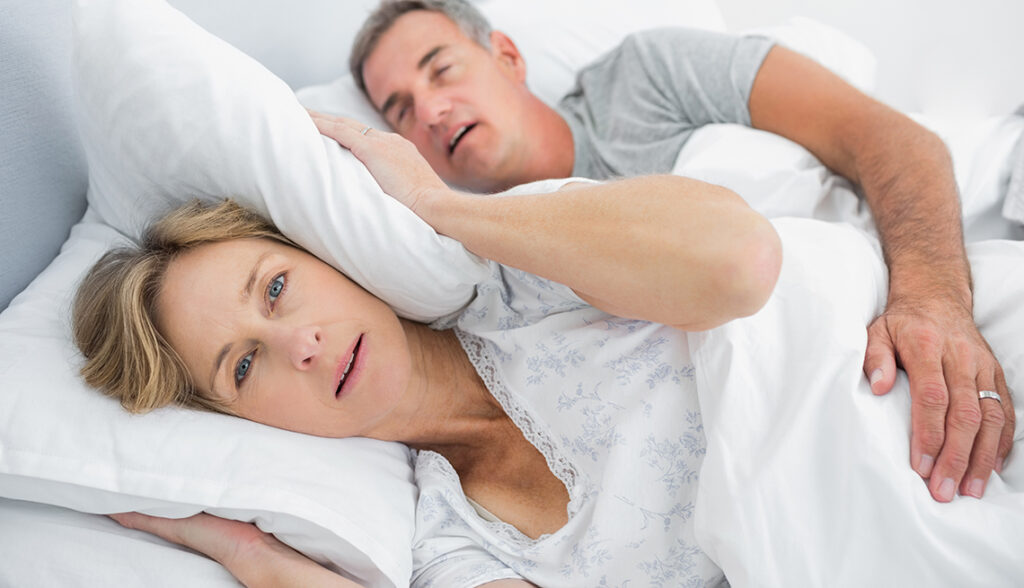Dr. Sibasish Dey
Mr. Khanna’s (name changed) family was confused a lot. They felt that he slept well every night because of his incessant snoring, but Mr. Khanna was always tired during the day. This tiredness took a toll on his health, and despite exercise and a moderate diet, he was diagnosed with hypertension, obesity, and diabetes. Things got out of hand when Mr. Khanna fell asleep behind the wheel during a weekend drive, and it was sheer luck that there wasn’t a fatal accident. Then, the family decided to visit a specialist to understand why this happens. The doctor said Mr. Khanna suffers from a condition called obstructive sleep apnea (OSA). After months of CPAP treatment, Mr. Khanna now sleeps well at night. He has managed to regulate his lifestyle conditions as well – a lovely Father’s Day gift he had given himself.
However, Mr. Khanna is not alone. Indians take the longest to go to sleep (the average time is around 90 minutes), according to a 2022 ResMed ALA Sleep survey. It can be for several reasons, including stress, screen-time before sleeping, and others. In addition, in India 59 per cent (out of 5,000 Indians surveyed) regarded snoring a sign of a good night’s sleep, which shows the lack of knowledge when it comes to OSA. Furthermore, 72% of those surveyed attributed a poor sleep cycle to poor emotional well-being. Reflecting, how sleep impacts our overall well-being.
As the name suggests, Obstructive Sleep Apnea (OSA) obstructs normal breathing during sleep, resulting in loud snoring, cessation of breathing, and abruptly waking up with a sore throat or a dry mouth. More sever issues include fatigue and daytime sleepiness, mood swings and irritability, sweating at night, and a decreased work and sex drive.
This lack of sleep also puts pressure on our mind and body. Sleep apnea is present in 1/3 of type 1 diabetic patients and often are also associated with patients already suffering from high blood pressure.
Diabetes and lifestyle diseases aren’t the only problems that arise from OSA. A research paper from Harvard Medical School about the general US population highlighted the relationship between the lack of sleep and mental well-being. Chronic sleep problems affect 50 per cent to 80 per cent of patients in a typical psychiatric practice, compared with 10 per cent to 18 per cent of adults. The paper said that sleep problems are prevalent in patients with anxiety, depression, and attention deficit hyperactivity disorder.
How do you tackle a family member or partner with sleep apnea?
The biggest thing to remember is you need to tackle a sensitive issue such as snoring, one of the signs of sleep apnea in an empathetic manner. Men are sensitive about snoring and may even deny that they are snorers. This is further confirmed by the same survey, as 62 per cent men surveyed believe that snoring is a sign of good sleep as compared to 53 per cent surveyed women. Secondly, general physicians must be aware of sleep apnea and for that awareness programs are required, as this may help people get treated for the actual condition rather than amending their lifestyle due to a misdiagnosis. With effective sleep apnea treatment such as CPAP therapy, along with lifestyle modification like losing weight, avoiding alcohol and smoking, a person sleeps well, ultimately allowing the body’s healing process. = Furthermore, with energy, you can indulge in physical activity which will ensure that your health is in place.
How to help them sleep better?
Sleep is as vital as other body functions, and as simple as it sounds, lack of it can cause serious implications. As a starter, you can check if the person has sleep apnea by going for a simple easy at-home test. It is essential to notice the signs by keeping track of sleep patterns and consulting a doctor for any issues.
Dr Sibasish Dey, Head – Medical Affairs, South Asia, ResMed
